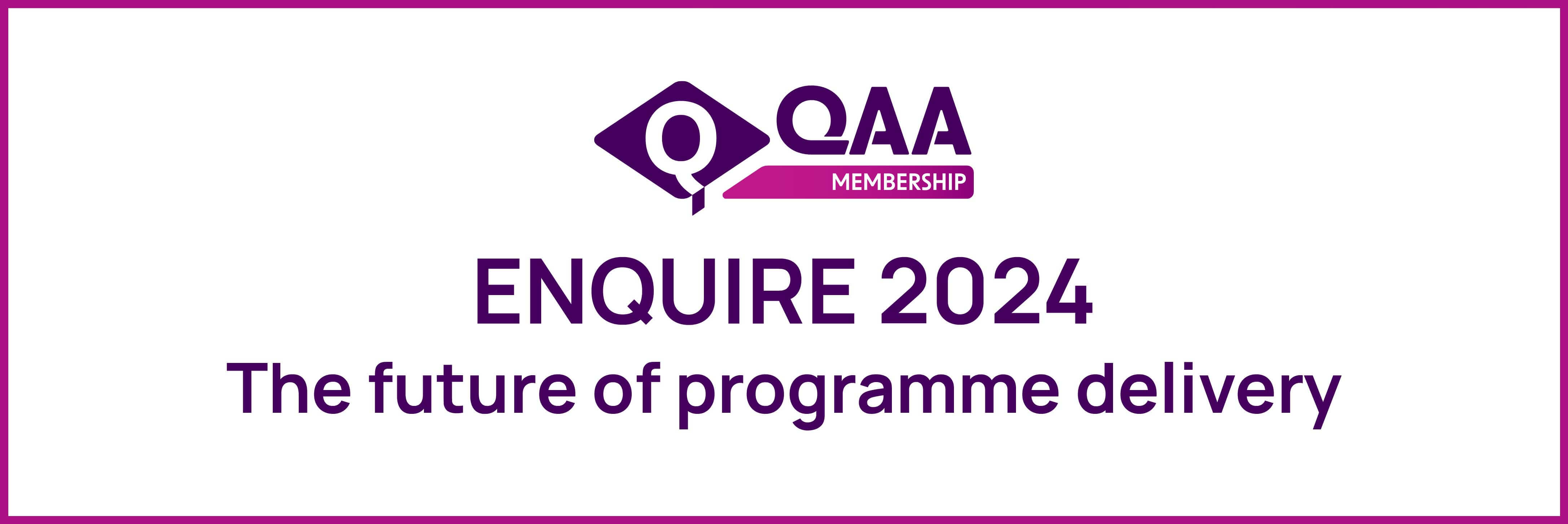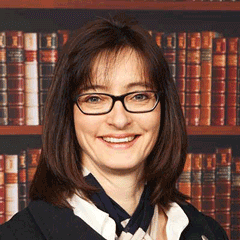30 May 2024
‘The best way to predict the future is to invent it’* - Building HE 5.0 together

Author
Professor Liz Cleaver
Independent HE Consultant
Exploring the Future of Programme Delivery
On the 11th April, representatives from QAA member institutions came together for the ENQUIRE 2024 online symposium: Exploring the future of programme delivery. The event was a welcome opportunity to listen to and discuss a range of contributions and insights, each chosen to support the work of academic teams with responsibility for planning, delivering and assessing taught degree programmes. It also formed the launch pad for the latest suite of updated Subject Benchmark Statements.
It probably doesn’t need repeating at length here, but we’re absolutely brilliant at creating ideas, building knowledge and inventing things in higher education. And this extends beyond our immediate teaching and research, to our creative and adaptive responses to a range of societal shifts and policy agendas, each of which influences the demographic composition of our student groups and their expectations and experiences of higher education.
At the heart of this creativity is our ability to share things and our understandings that we often achieve our best work when we come together. Some of the best innovations in knowledge, understanding and practice emerge from peer-based, interdisciplinary and inter-professional academic activities. This is exemplified brilliantly in the QAA Collaborative Enhancement Projects and the team work that sits behind the revised Subject Benchmark Statements.
In theory, these forms of collaboration could become (are becoming?) increasingly difficult in the ever more competitive and market led HE landscape. With this in mind, the value of our community work, where we unite as a sector to discuss problems and challenges and seek out community solutions, can’t be underestimated. And this community spirit certainly played out at the ENQUIRE event where we were invited to glimpse into a number of other institutional and subject worlds, to look around, to share ideas and to ask questions.
First up was Professor Sarah Jones (University of Gloucestershire) who made the case for Learning in Block - the delivery of programmes via sequential modules at each level of study. Sarah explored how this approach can unblock some of the learning challenges that arise when students study several modules in parallel. Of course, there can be some teething issues as students’ transition, e.g., pre-requisites and the need for a standardised credit framework. But the prize is system that is fit for an era of lifelong learning in which students can “hop on” and “hop off” their educational journey stacking credits towards their final award along the way.
Reflecting on how hybrid teaching evolved from “practice-by-accident" to “pedagogy-by-design", Professor Cecilia Goria (University of Nottingham) shared research exploring the challenges and successes of hybrid teaching from the perspectives of students, academics and support staff. Among a raft of recommendations, Cecilia highlighted the importance of clearly embedding expectations and communicating with stakeholders, including transparent communication with staff and students, having a hybrid teaching policy, and providing appropriate training support that enables academics to feel more confident in this space.
As a final example, Dr Sallyanne Decker (University of Greenwich) explored her experience of sharing modules between programmes. While this practice certainly isn’t new, there are many benefits for student learning that resonate well with our 21st century context. Not least the growing recognition that employers seek graduates who are comfortable with interdisciplinarity and peer learning, and who have developed their skills of creativity, and their social and emotional literacies. Sallyanne shared initial outcomes from Embedding multiple disciplinary affiliation identities in shared modules to enhance curriculum which explores how differences in student disciplinary affiliations are balanced with tutor disciplinarity when designing shared modules. Whilst challenges around disciplinary identity, fair assessment and quality assurance remain, students report a broad range of educational, professional and social benefits.
What might the future hold?
Rather than predicting the future of programme delivery, we need to ensure we’re collectively engaged in creating it. We need to actively respond to the fast-changing needs of the world around us – including those of our students and the multiple stakeholders that have vested interests in HE. In this shifting space, our networks and trusted relationships are arguably more important than ever, as our worlds become increasingly complex, fragmented and competitive.
And we mustn’t draw hard lines around or prioritise communities that are made up of certain types of institutions or certain groups of people. We need to recognise the increasing porosity of the boundaries between higher education, other forms of education, society, business and industry and build on the new communities that are beginning to form in some areas of higher education (such as business and industrial panels). Our disciplinary communities – and programme development teams – could (should?) grow to include other educational sector representatives, employers, emerging tech and market experts, business and data analysts and policy wonks – to name but a few. This will not only help us to keep up, but to actively invent the future. I’ve been arguing for some time that aspects of academic governance need similarly to adapt too.
Please don’t get me wrong – as the ENQUIRE event proved, we’re doing well. There’s good evidence of our ongoing intent and ability to work together despite the prevailing winds of commodification and competition. So, let’s keep inventing the future of programme delivery, together. Like Industry 5.0, HE 5.0 must aim beyond efficiency, productivity and economic value, and reinforce the contribution of our programmes of study to society and the wider world, and the amazing contribution of society and the wider world to our programmes of study.
* With thanks to Alan Kay (educator and computing pioneer)
